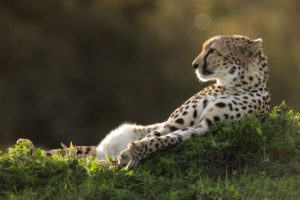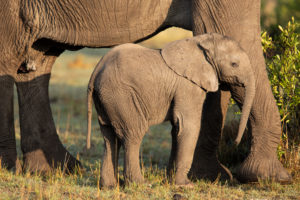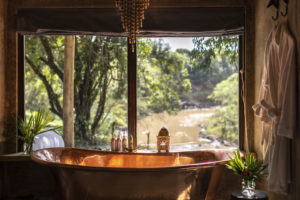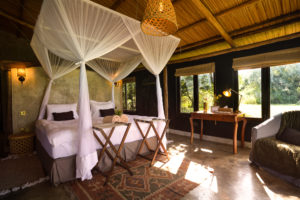Kenya’s Enonkishu Conservancy is a rewilding pioneer. Is this a new vision for regenerative tourism in the Mara valley?
Today, the Enonkishu Conservancy, on the edge of the Mara-Serengeti Ecosystem, is thriving. Wildebeest and zebra graze. Giraffe browse the acacia trees. Lion prowl. And Maasai pastoralists move their healthy livestock across flourishing grasslands.
But turn the clock back just over a decade, and it was a very different picture indeed.
This swathe of land on the Mara river was once intensive commercial farmland. Green beans and mange tout were mass planted and flown to Tesco. The land was degraded and human-wildlife conflict in the surrounding community was a serious problem.
Tarquin Wood grew up on the farm. But in 2009 Tarquin and his wife Lippa realised things needed to change.
“I remember us sitting on a hill, under a tree, eating goat with the local Maasai landowners, and asking them what they wanted to leave to their children,” Lippa recalls. “On one side we could see small, heavily farmed, fragmented pieces of land; on the other, the wildlife-rich plains of the Maasai Mara. They wanted the latter, but couldn’t see how it could be achieved. They needed to make a living; it wasn’t the wildlife they were fighting against, it was the loss of their livelihoods caused by it. Seeing their will to address the imbalance was all we needed to do whatever we could to make the dream a reality.”
So, after a lot of blood, sweat and tears, and a leap of faith Tarquin and Lippa created Enonkishu (‘place of the healthy cattle’). The first project of its kind in the region, it has seen the farm reverted to nature. The land has been rewilded and the community’s livestock is managed via a holistic grazing plan, which allows the land to recover.
As a result, the natural habitat has bounced back at astonishing speed; large numbers of wild animals have returned. Many Masai landowners who didn’t buy into the original vision have now seen the results and are keen to become part of this collaborative enterprise. Enonkishu’s mission is to make conservation work for the land, wildlife and people of the northern Mara. So far, it’s ticking all the boxes.


At the heart of the conservancy is Naretoi – ‘the place where blessed things are happening’. This 1,000-acre private estate is home to the House in the Wild, an intimate, boutique ecolodge on the banks of the river. Built from locally sourced materials, run on 95% solar energy and serving produce from a community-run organic garden, it is both a gorgeous bolthole and an exemplar of sustainable safari lodging, with excellent game-viewing and a magical vibe.
The House in the Wild is also vital to Enonkishu as a whole. It is ecotourism that helps fund the sustainable conservation and community development projects that are preserving this wild place. That includes tree-planting programmes, educating children about conservation at the Mara Training Centre and supporting local business development, especially businesses run by women. Also, every guest at House in the Wild pays a fee that is spilt between the Maasai landowners; it gives the Maasai a guaranteed income and an incentive to keep the wildlife safe.
“Ecotourism goes hand in hand with conservation and community development,” says Lippa. “In order for one to do well, they all have to thrive.”

